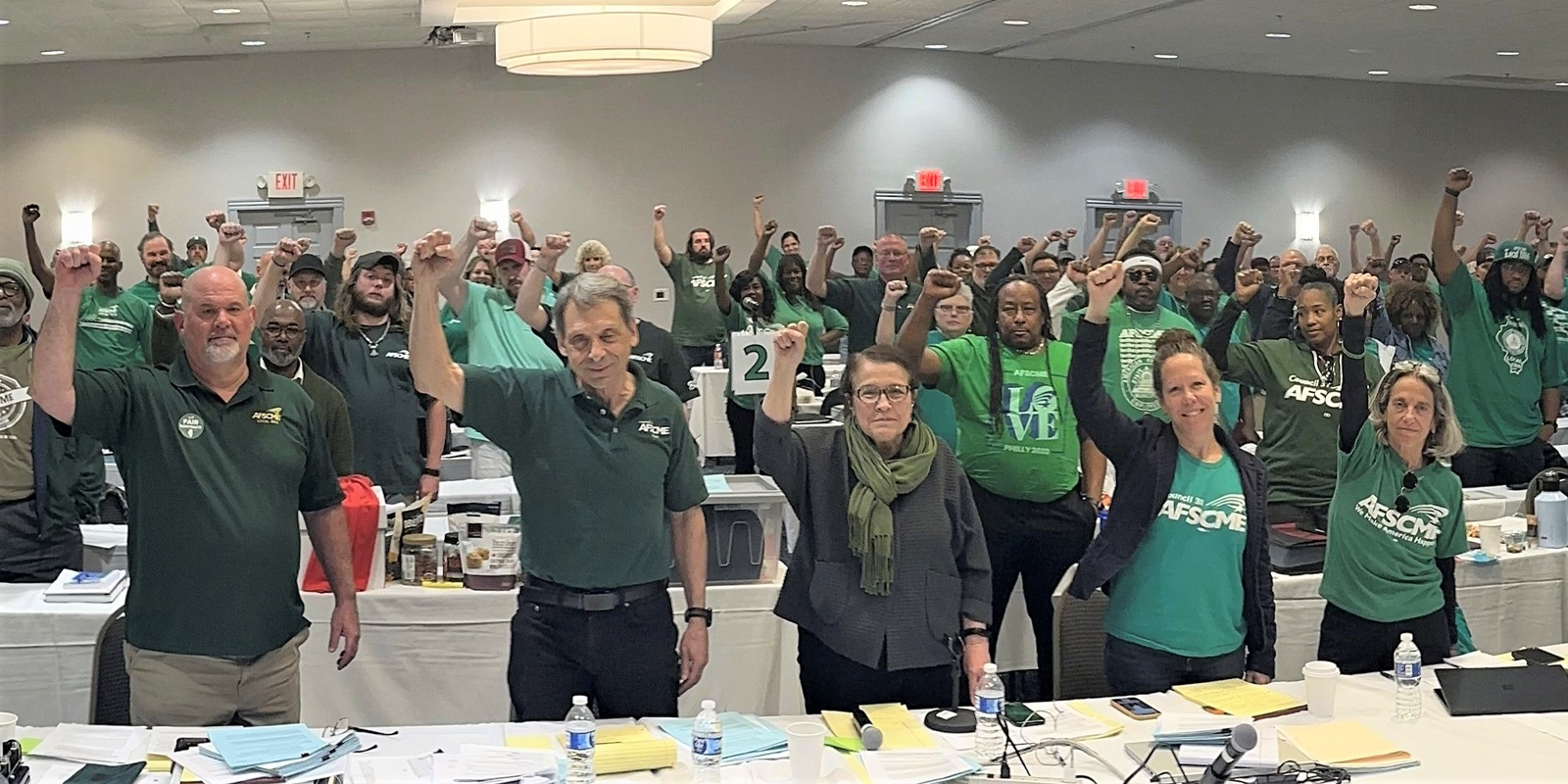CHICAGO – After hundreds of workplace actions and countless displays of solidarity big and small by AFSCME Council 31 members all across state government, the AFSCME Bargaining Committee – comprised of 220 union members elected by their co-workers – and the State of Illinois reached a tentative agreement July 1 and members ratified it by the end of the month. The new contract covers more than 30,000 state workers.
“We’ve built our union strong,” said Roberta Lynch, Council 31 executive director, chief negotiator for the Bargaining Committee, and an AFSCME vice president. “We know that standing together and acting together in unity will carry us forward and make our working lives better in so many ways. It is that commitment and unity that has brought us to this moment – a new collective bargaining agreement that makes significant progress on so many fronts.”
Over nearly six months, AFSCME members in every state agency stood up to demand fairness and show management that they would back their Bargaining Committee every step of the way.
In the weeks leading up to the contract’s scheduled expiration on June 30, more than 14,000 members signed cards pledging to take whatever action was needed to win a fair contract agreement. The Bargaining Committee piled those cards into 20 clear plastic storage bins and delivered them to management as a show of solidarity.
Bargaining committee member Mickey Lomeli of AFSCME Local 1753 (Joliet Treatment Center employees) said that delivering the pledge cards helped pave the way to the agreement.
“Seeing management’s reaction to all those bins, it was beautiful. You could see that it caught them off guard,” Lomeli said. “We told them that those cards are a symbol of all of our members and their commitment to winning a fair contract. That’s when things started to change.”
The new four-year contract was ratified by a 99% vote. It includes pay increases totaling 17.95% over the four-year term of the contract, as well as a $1,200 stipend to each bargaining unit member to be paid upon ratification of the contract. The Bargaining Committee was also able to secure paygrade increases for 37 titles covering thousands of employees.
Longevity pay will go up $30 per month, effective Jan. 1, 2024. The shift differential will increase to $1.50 an hour on the same date and to $1.75 an hour a year later.
The contract also makes clear that remote work wasn’t just a temporary pandemic measure; it’s here to stay, based on the operational needs of the agency. This provision ensures that employees currently eligible for remote work will remain so and opens the door to expansion for additional employees.
“A lot of our members were worried that the hybrid or remote system would go away,” said Brittany Adams, a human services casework manager and one of the Bargaining Committee representatives from Local 2858. “People are very excited that it’s not going away. We’ve shown that we can work remotely and still be very productive and now we can continue doing so.”
Under the new contract, state employees are now eligible for 12 weeks of parental leave for both birthing and non-birthing parents.
“There are so many things that are so beneficial, especially for young members that want to start families,” said Valarie Medley, a public health program specialist and Bargaining Committee representative from AFSCME Local 805. “If you’re a young employee wanting to have kids, now you can have those 12 weeks of leave.”
One of the Bargaining Committee’s most fiercely fought battles was to contain health insurance costs. The employer sought large increases in premiums and out-of-pocket maximums that would have forced virtually every employee to pay thousands of dollars more over the term of the agreement.
“We all feared what would happen if management had their way on health care costs,” said Heather Heelan, a correctional officer at Sheridan Correctional Center and a member of the Bargaining Committee from Local 472. “We were all very happy with the final outcome. The health care costs increases are very modest.”
In the end, the Bargaining Committee succeeded in keeping health insurance affordable. The final contract makes certain that there will be no increase in annual out-of-pocket maximums for the term of the agreement, and no health care cost increases at all in the first year of the contract. Employee premium contributions will increase by $10 per month in the second year of the contract, and by $8 per month in the third and fourth years.
“The camaraderie, bringing all these people together all these who have different beliefs, backgrounds and feelings about our jobs, [is how] we got it done,” Medley said. “We worked together as a union to get a contract that would help everyone. And we’re all very proud of that.”
